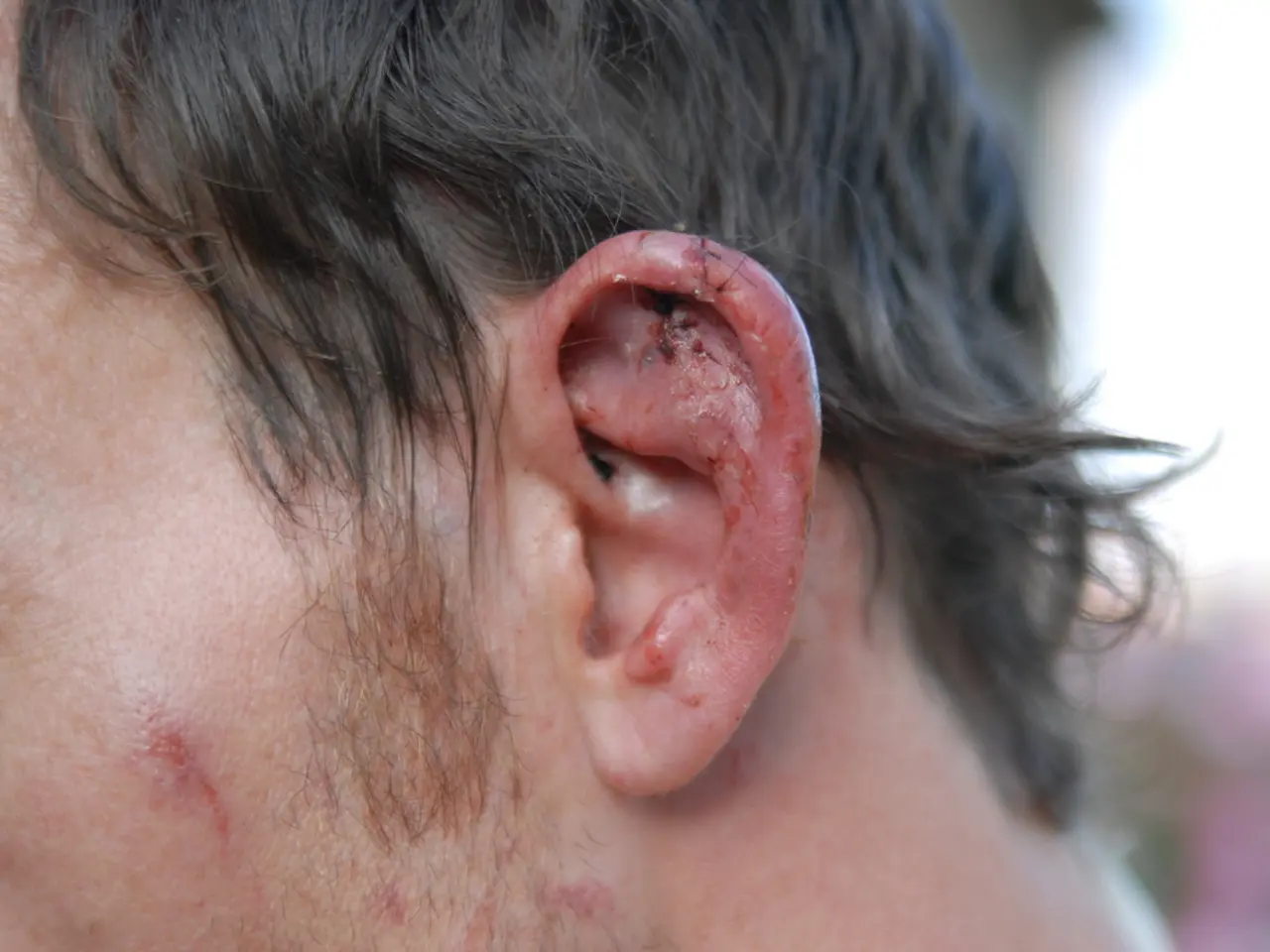Understanding the Origin of Balance Sensation: Dive into the Vestibular System's Function and Impact on Orientation and Mobility
Understanding the Vestibular System: The Inner Ear's Invaluable Role in Balance and Orientation
The vestibular system, a crucial component of our inner ear, plays a vital role in maintaining balance and spatial orientation. This internal sensor system continuously informs the brain about the body's orientation relative to gravity and motion.
Structurally, the vestibular system is primarily composed of three semicircular canals, which are fluid-filled tubes oriented roughly at right angles to each other, and the otolith organs (utricle and saccule). These organs contain tiny crystals called otoconia that rest on hair cells and detect linear accelerations and the position of the head relative to gravity (tilts).
When the head moves, fluid shifts inside the semicircular canals, and the otoconia shift on the hair cell surfaces, bending tiny hair-like structures on sensory cells. This bending generates nerve signals sent to the brain, which integrates the information to maintain balance, posture, and stable vision.
Key reflexes supported by this system include the Vestibular-Ocular Reflex (VOR), which stabilizes vision by producing eye movements that compensate for head motion, keeping images steady, and the Vestibular-Spinal Reflex, which helps maintain upright posture and balance automatically.
The vestibular system works alongside the visual system and proprioceptive system (sensory input from joints and muscles) to provide a comprehensive sense of balance and orientation.
Vestibular rehabilitation, involving exercises that challenge the vestibular, visual, and proprioceptive systems, helps the brain adapt to sensory changes and improves balance for individuals with vestibular disorders or balance impairments.
The vestibulospinal reflex coordinates muscle activity to stabilize the body when we are in motion or encountering uneven surfaces. The vestibular system's influence extends beyond balance and spatial orientation, affecting cognitive and emotional health. Disruptions in the vestibular system can impact cognitive functions, leading to symptoms like "brain fog," and are associated with increased anxiety, depression, and mood swings.
Understanding the vestibular system's structure and function reveals the complexity of balance and highlights the importance of maintaining vestibular health for overall quality of life.
| Aspect | Details | |----------------------|--------------------------------------------------------------------------------------------------------------| | Location | Inner ear | | Main Components | Semicircular canals (detect rotation), otolith organs with otoconia (detect linear acceleration and tilt) | | Function | Detect head motion and orientation; send signals to the brain for balance and spatial awareness | | Key Reflexes | Vestibular-Ocular Reflex (eye stabilization), Vestibular-Spinal Reflex (posture control) | | Integration with | Vision and proprioception to maintain balance and coordination |
This system operates continuously, even when eyes are closed, allowing us to keep balance and navigate our environment effectively.
[1] Vestibular neuritis: https://www.nhs.uk/conditions/vestibular-neuritis/ [2] Meniere's disease: https://www.nhs.uk/conditions/menieres-disease/ [3] Benign Paroxysmal Positional Vertigo (BPPV): https://www.nhs.uk/conditions/benign-paroxysmal-positional-vertigo-bppv/ [4] Motion sickness: https://www.nhs.uk/conditions/motion-sickness/ [5] Vestibular rehabilitation: https://www.nhs.uk/conditions/vestibular-rehabilitation/







